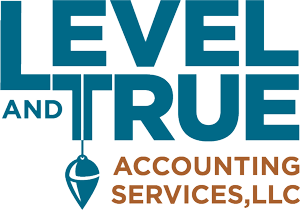Taxation and accounting matters can be overwhelming to any business owner. They are typically areas that a smart business owner will want to bring in professional help.
So who should you call? The first tax professional to come to mind may be a CPA. What other options should a small business consider? Many small businesses receive tax preparation assistance from an Enrolled Agent.
How does an Enrolled Agent compare to a Certified Public Accountant? Which type of tax professional is best for my business?
The Differences Between a CPA and EA
In short, a CPA or Certified Public Accountant, is a state-licensed financial professional that can offer many types of financial services. An EA, or Enrolled Agent, is a federally-licensed financial professional who specializes in taxation. Both EAs and CPAs are authorized to represent you in IRS related matters.
Becoming a CPA is a lengthy process, which can vary slightly depending on the state. All states require either a Bachelor’s Degree in Accounting or between 120 and 150 relevant credit hours at an accredited institution before an applicant can sit for the CPA certification exam. After passing the exam, aspiring CPAs must work under another CPA for a period of time before becoming licensed. To maintain their license, CPAs also have hefty annual continuing education requirements which also vary within states. For example, Connecticut requires CPAs to report a minimum of 40 credit hours in areas acceptable to the state board of accountancy, such as accounting and business subjects.
Why is this important? It costs considerable time and money to become a CPA, therefore they will typically need to charge more for their services. Their education and experience qualifies them for a wide variety of services.
Being an EA does not require a degree, but applicants must pass a three part exam. They must demonstrate knowledge in all areas of taxation, representation and ethics. EAs need to complete 72 continuing education credits in taxation and ethics every three years in order to maintain active status.
Who needs a CPA?
If your business requires an independent audit, you must hire a CPA. They are authorized to verify whether financial statements have been prepared properly. Publicly traded corporations or large non-profit organizations are required to have annual audits performed by an independent CPA firm.
Partnerships are not be required to utilize the services of a CPA, but utilizing the services of a tax advisor with higher credentials may be the wisest choice due to the potential for misunderstandings that can occur with this business type. Personal factors should also be taken into consideration. If the owner has complex investments or retirement plans, it might be advantageous to have a CPA handle both the business and personal returns.
When is an EA a better fit?
EAs specialize in IRS law and, like CPAs, are approved to file taxes in all 50 states by the federal government. They can prepare partnership returns, S Corp and C Corp returns, and personal returns, including the schedules that single member businesses (Schedule C filers) include in their personal 1040 return. If a business owner is ordered to court by the IRS, both CPAs and EAs are authorized to represent them.
IRS tax laws are constantly changing and qualified tax advisors can help small business owners navigate those changes. Many EAs advise businesses in other areas of taxation such as payroll.
What do EAs look for in clients? Jose Rivera EA, owner of JNJ Tax Services (who also happens to be my father), shared his requirements: “Client cooperation in producing proof of stated income and expenses makes me comfortable when working with clients. In addition, I ask new clients to provide the last two years of completed returns.” He also mentions, “If a return is more complex and if a bank’s client is requesting audited or unaudited financials along with tax returns, I would refer the client to a CPA.”
Business Tax Preparation is a Team Effort
Here at Level and True Accounting Services LLC we believe in the power of teamwork. We leverage our understanding of tax law and accounting concepts to provide our clients with day-to-day guidance for their businesses. This allows us to serve as an intermediate between clients and their tax advisors, making sure that the business books are accurate and well organized for year-end. We’d love to be a part of your team.
If you don’t currently have a trusted tax professional, we would be happy to discuss your needs and make appropriate recommendations.
– By Jennifer Rivera, Assistant at Level & True Accounting Services LLC

